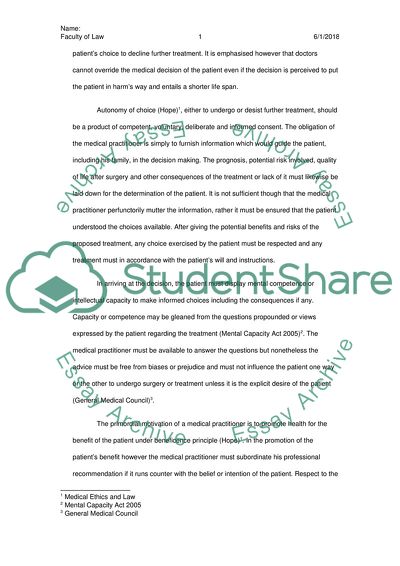Cite this document
(The Right of a Patient to Choose over the Obligation of the Medical Case Study - 1, n.d.)
The Right of a Patient to Choose over the Obligation of the Medical Case Study - 1. Retrieved from https://studentshare.org/law/1748466-medical-law
The Right of a Patient to Choose over the Obligation of the Medical Case Study - 1. Retrieved from https://studentshare.org/law/1748466-medical-law
(The Right of a Patient to Choose over the Obligation of the Medical Case Study - 1)
The Right of a Patient to Choose over the Obligation of the Medical Case Study - 1. https://studentshare.org/law/1748466-medical-law.
The Right of a Patient to Choose over the Obligation of the Medical Case Study - 1. https://studentshare.org/law/1748466-medical-law.
“The Right of a Patient to Choose over the Obligation of the Medical Case Study - 1”, n.d. https://studentshare.org/law/1748466-medical-law.


